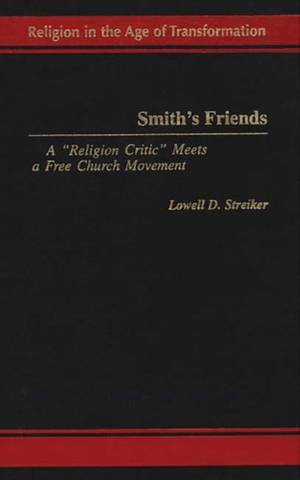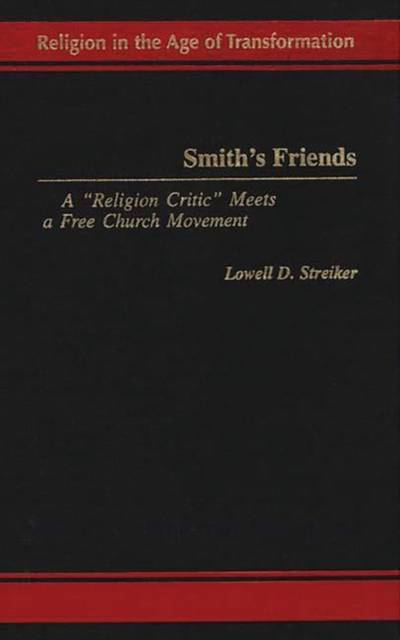
En raison d'une grêve chez bpost, votre commande pourrait être retardée. Vous avez besoin d’un livre rapidement ? Nos magasins vous accueillent à bras ouverts !
- Retrait gratuit dans votre magasin Club
- 7.000.000 titres dans notre catalogue
- Payer en toute sécurité
- Toujours un magasin près de chez vous
En raison de la grêve chez bpost, votre commande pourrait être retardée. Vous avez besoin d’un livre rapidement ? Nos magasins vous accueillent à bras ouverts !
- Retrait gratuit dans votre magasin Club
- 7.000.0000 titres dans notre catalogue
- Payer en toute sécurité
- Toujours un magasin près de chez vous
161,45 €
+ 322 points
Description
Lowell Streiker, a longtime expert on free church movements and cults, examines a vital and growing free church movement--an impressive movement that is yet largely unknown. Founded in Norway more than 90 years ago, it is a church without membership rolls, clergy, central administration, tithing, or even a name. Outsiders call them Smith's Friends after their founder, Johan Oscar Smith. On a worldwide basis, some 30,000 people participate in more than 200 churches in 50 countries.
As a phenomenologist of religion, Streiker attempts to be descriptive, analytic, and constructively critical. In order to set Smith's Friends in historical, social, and religious perspectives, he first examines their similarities to and differences from earlier Norwegian revival movements. He then provides a detailed phenomenological report on Smith's Friends, based on field study in America and Europe. He examines their worship, hymnody, theology, and their everyday way of life. As a friendly critic, Streiker entertains the hope that Smith's Friends will come out of their small-church shell and actively engage Christendom and the world. If they do, Streiker believes we would all be better impressed by the influence of this extremely positive force for spiritual renewal. Streiker's examination presents an important study for scholars of religion, sociologists, psychologists, historians, and the general public concerned with modern religious life.Spécifications
Parties prenantes
- Auteur(s) :
- Editeur:
Contenu
- Nombre de pages :
- 264
- Langue:
- Anglais
- Collection :
Caractéristiques
- EAN:
- 9780275960841
- Date de parution :
- 30-03-99
- Format:
- Livre relié
- Format numérique:
- Genaaid
- Dimensions :
- 163 mm x 244 mm
- Poids :
- 598 g

Les avis
Nous publions uniquement les avis qui respectent les conditions requises. Consultez nos conditions pour les avis.






